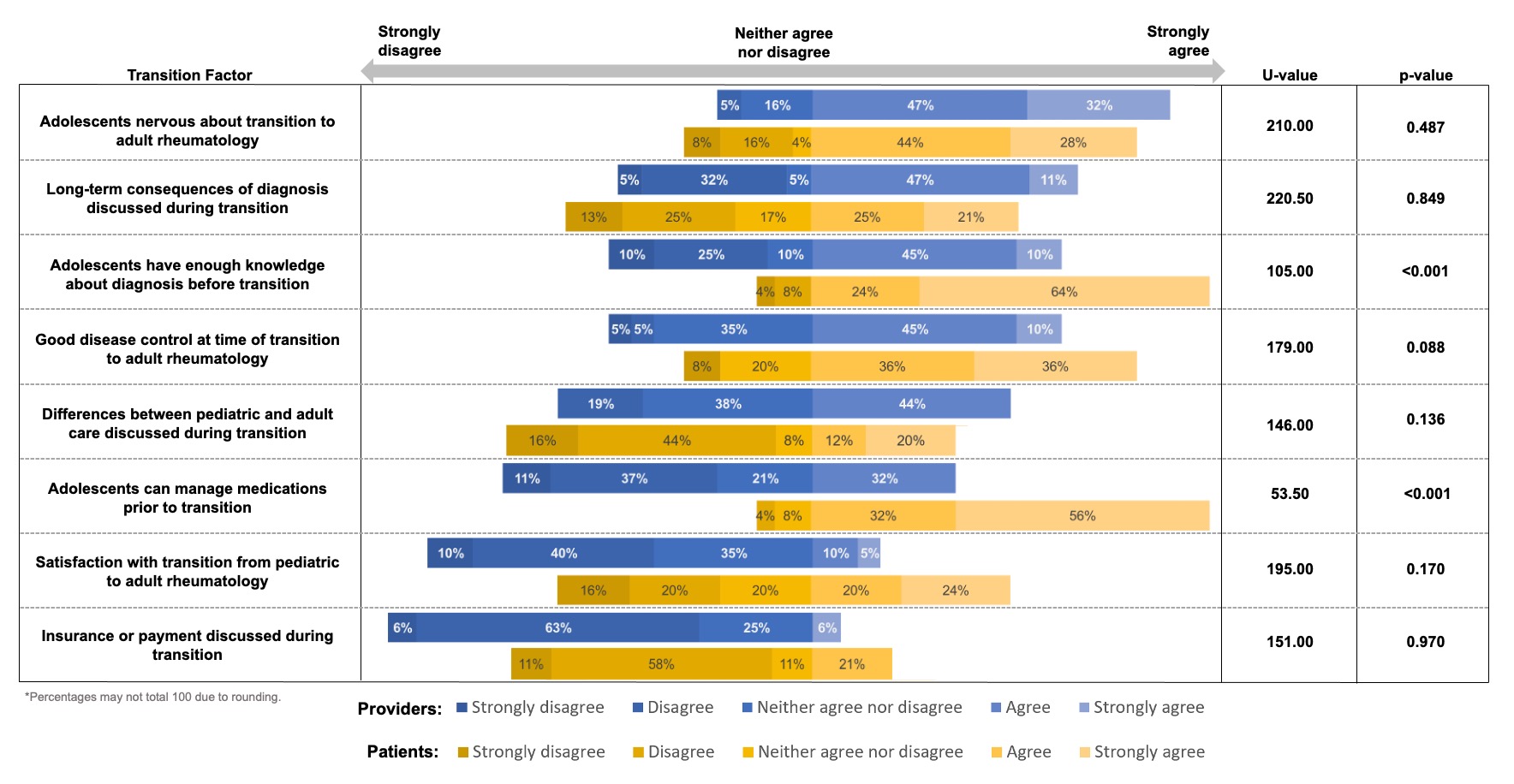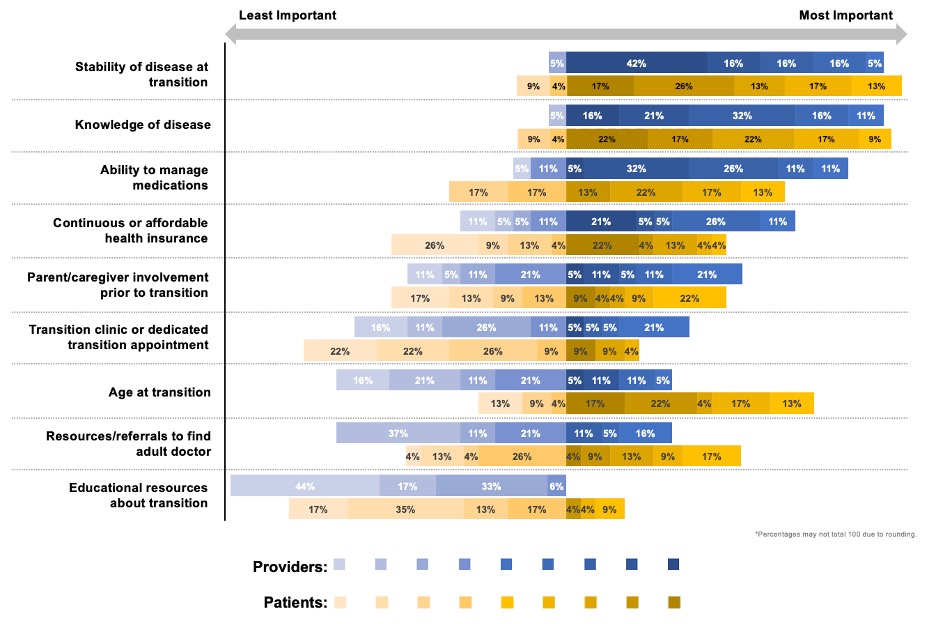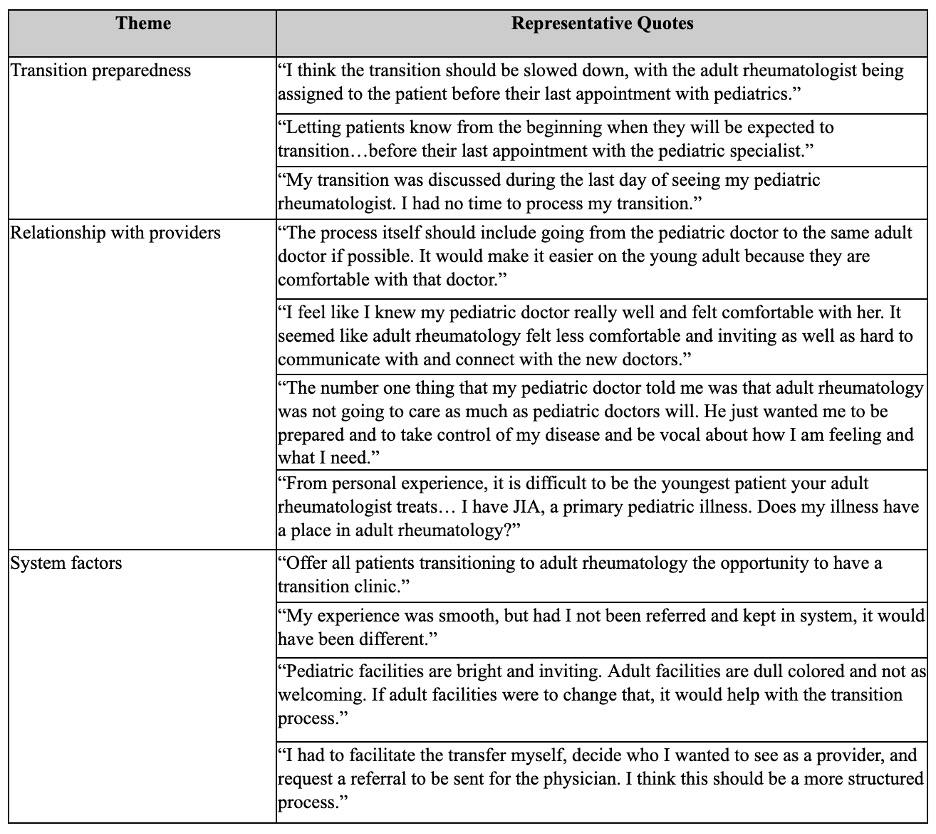Session Information
Session Type: Poster Session A
Session Time: 10:30AM-12:30PM
Background/Purpose: The transition from pediatric to adult rheumatology is a vulnerable period for adolescents and is associated with greater disease burden. Adolescents require an organized transition to reduce loss to follow up and maintain disease control, but stakeholder perspectives surrounding this process remain poorly defined. The aim of this study was to evaluate patients’ and providers’ perspectives on current practices for transitioning patients from pediatric to adult rheumatology.
Methods: A 32-question survey was sent to patients aged 18-27 who transitioned from pediatric to adult rheumatology between 2020-2023 and pediatric, adult, and med-peds rheumatologists. The study was completed at a single institution without a formal transition program and evaluated adolescent patients’ and providers’ experiences with current transition practices. Results were analyzed using the Mann-Whitney U test.
Results: The survey was completed by 25 patients and 25 rheumatologists (6 pediatric, 15 adult, 4 med-peds). Patients and providers agreed that adolescents were nervous about transitioning to adult rheumatology (72% and 79% respectively, Figure 1). More patients (88%) reported an adequate level of understanding of their rheumatic condition compared to their providers (55%) at time of transition (U = 105.00, p < 0.001), along with greater ability to manage their medications independently (88% versus 32%, U = 53.50, p < 0.001). Less than half of providers (44%) and patients (32%) reported having discussed differences between pediatric and adult care, and only 58% of providers and 46% of patients reported discussing long term consequences of their condition, with no statistically significant difference in either case. Insurance coverage was also rarely discussed (6% of providers, 21% of patients). Most providers (55%) and patients (72%) reported good disease control at time of transition, but only 15% of providers and 44% of patients were satisfied with current transition practices. In rating factors for a successful transition, providers and patients agreed that stability of disease and patient knowledge of disease condition were the most important factors, and access to educational resources was least important (Figure 2). Patients’ primary concerns regarding transition were related to preparedness for transition, relationship with their providers, and systemic factors (Table 1).
Conclusion: Without a structured transition program, there appear to be gaps in the care experienced by adolescents moving from pediatric to adult rheumatology. Important transition topics were not reported as discussed, and satisfaction with current transition practices is low. This study identifies several specific areas that can be targeted for improvement in building a more robust transition process for patients with rheumatic conditions.
To cite this abstract in AMA style:
Witowska J, Curtis B, Donahue M, Platte S, Northway R, Madison J. Adolescents’ and Providers’ Perceptions of the Transition from Pediatric to Adult Rheumatology [abstract]. Arthritis Rheumatol. 2024; 76 (suppl 9). https://acrabstracts.org/abstract/adolescents-and-providers-perceptions-of-the-transition-from-pediatric-to-adult-rheumatology/. Accessed .« Back to ACR Convergence 2024
ACR Meeting Abstracts - https://acrabstracts.org/abstract/adolescents-and-providers-perceptions-of-the-transition-from-pediatric-to-adult-rheumatology/



